The international situation and the historical epoch are defined by the compound crisis of world capitalism. This appears to be the worst crisis in the history of the system and to pose more starkly than ever the choice between revolution/socialism and barbarism/the mutual destruction of the contending classes. The crisis has economic, ecological, epidemiological, social, geopolitical-military, and political-cultural dimensions. The crisis is accelerating and intensifying. The Liberal Centre, liberal-parliamentary democracy, and international institutions like the UN, the IMF, the G20, etc – the entire mainstream bourgeois political apparatus – seem unable to solve any of the major global problems; they are limited to short-term and half-baked palliatives. Revolution has become an existential imperative. But the working class, the oppressed, the progressives, and the Left have yet to achieve revolutionary agency following almost half a century of defeat, disorganisation, and disorientation during the era of neoliberal counter-offensive by the international ruling class.
The economic crisis is a chronic and intractable crisis of relative stagnation caused by the system’s inherent long-term tendency towards over-accumulation. This has given rise to the distinctive pathologies of neoliberalism. These include: financialisation, asset inflation, and speculative bubbles; the permanent debt economy; privatisation and the destruction of the commons; militarised accumulation; manic consumerism; the transnationalisation of capital and the prevalence of hollow corporations; and grotesque and growing social inequality. For working people this manifests today as increasing inflation, job insecurity, and low wages. It means that living standards are deteriorating for people who previously believed that capitalism would provide from one generation to the next. Rising prices for consumer goods, housing, and transport are predicted to continue to globally. It is likely that the era of low inflation is over as the contradictions of a global neoliberal economy combined with climate change-related shortage begin to deepen.
Since the 2008 financial crash, moreover, there has been a marked shift from free-market neoliberalism to state-dependent neoliberalism, a shift confirmed and intensified by the 2020 pandemic crash. Sustained for 30 years by regular infusions of fictitious capital, the system is now on permanent life-support.

The ecological crisis is dominated by global warming and the clear and present danger of climate catastrophe. The huge mass sentiment for climate-change action is blocked by the imperatives of capital accumulation, by fossil-fuel capitalism, by the timidity of the Liberal Centre, and by the growing strength of the Authoritarian Right. A group of major states that are either fossil-fuel producers or fossil-fuel dependent – the US, China, Russia, India, Brazil, Australia, Saudi-Arabia, and others – form the core of the opposition to effective action. The failure of COP26 to agree the immediate drastic action necessary to halt fossil-fuel extraction, reduce fossil-fuel consumption, and move rapidly to a zero-growth, steady-state economy – combined with its essential corollary, a global redistribution of wealth from the rich and the corporations to the Global South – is confirmation that the international bourgeoisie is incapable of preventing climate catastrophe.
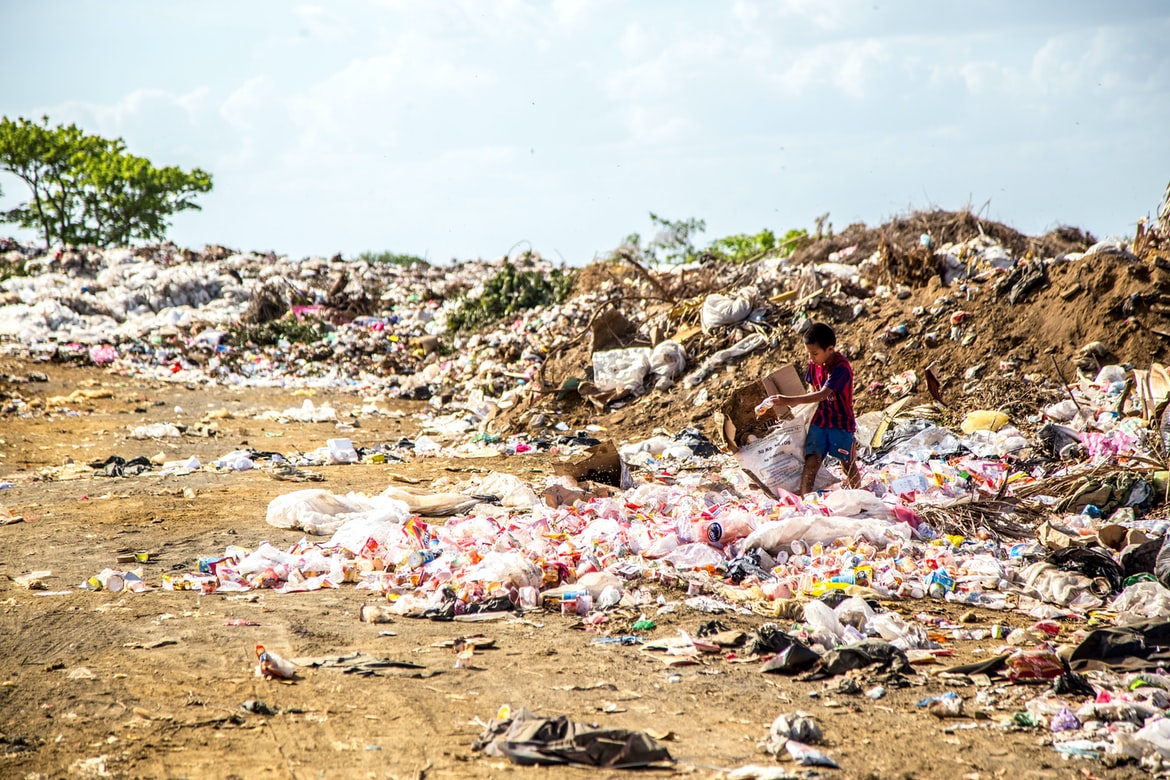
The epidemiological crisis is dominated by the continuing Covid-19 pandemic. This has been centred in countries with governments of the Authoritarian Right, especially where politics have been driven by pandemic-denial (Trump and Bolsonaro) and herd-immunity eugenics (Johnson). Huge expenditure on Covid-Keynesian subsidies to sustain advanced economies risks being undermined by inability to suppress the virus and the likelihood of new variants. The failure to share vaccines with poorer countries and subsidise associated health provision is liable to rebound on the richer states. Tens of millions are infected with Covid-19 globally, creating a vast breeding pool for new, more transmissible, more vaccine-resistant, more lethal variants. The world economy is likely to be hammered by further lockdowns and restrictions in consequence. The economic cost of existing and future bailouts – like those following the 2008 financial crash – may mean further austerity cuts. This is to speak only of the current Covid-19 pandemic. But the destruction of wilderness, the loss of biodiversity and natural firebreaks, the creation of vast agribusiness monocultures, the juxtaposition of factory farms and slum cities, and globalised supply-chains mean that new pandemics are highly likely in the immediate future.
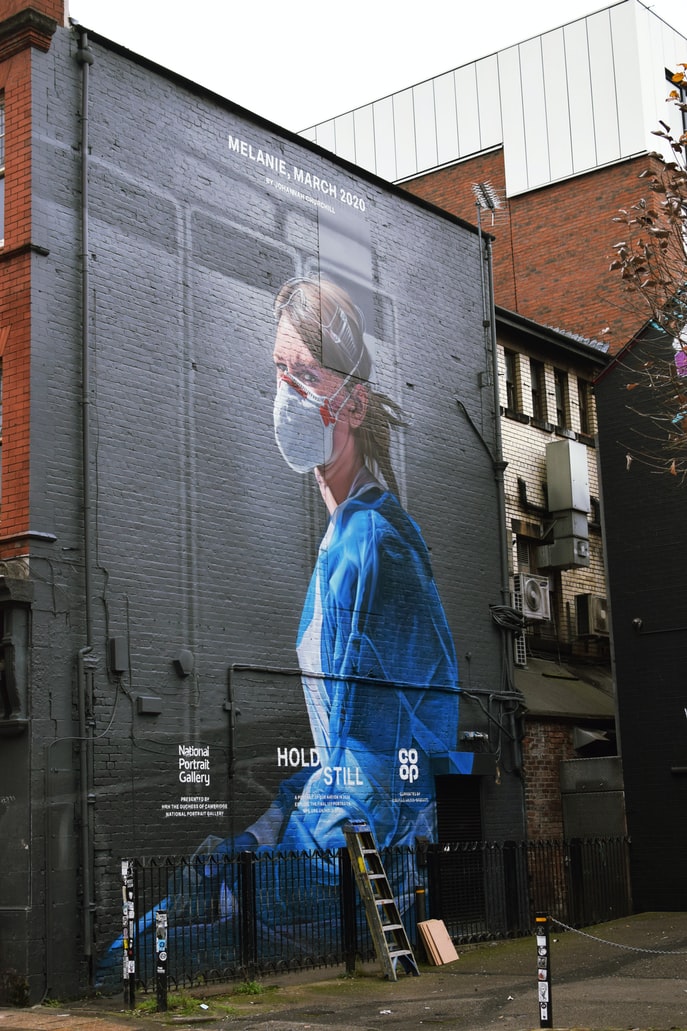
The social crisis is underlain by ever-deepening inequality, both within and between nations. This inequality is deeply ingrained in the DNA of neoliberalism, but has been intensified by the 2008 financial crash, the climate crisis, the pandemic, and the unravelling of the geopolitical order, with its imperialist wars, civil wars, failed states, warlordism, mafia, and mass displacements. The poor and the oppressed, at home and abroad, are at the sharp end of the social crisis, especially the estimated 750 million internal and external migrants. The refugee crisis, especially on the borders of Europe, the Middle East, and Africa, but also on the US-Mexican border, reflects the desperation that war, ecological breakdown, neoliberal ‘restructuring’, and growing corporate power and social inequality have created. This crisis then provides the main reactionary banner around which fascist and other nationalist-racist forces are assembled.
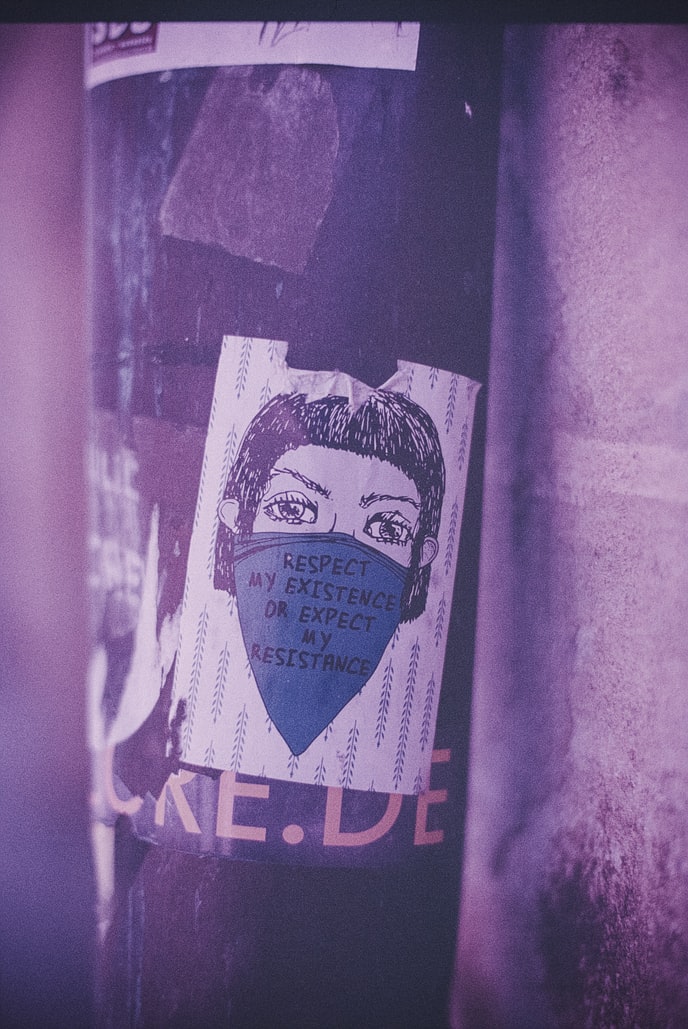
The war on women, whether it is through the denial of access to education in many parts of the globe, especially those under fundamentalist control, the epidemic of violence against women, or the attacks on women’s right to control our fertility through access to abortion and contraception, need to be a key focus for us. England and Wales have not experienced the same new growth of feminist organising we have seen over recent years in many other parts of the world, but we should continue to look for opportunities to relate to what radical organising exists. The threat to Roe v Wade in the USA means the need for practical solidarity needs to be urgently discussed.
On the other hand, the Authoritarian Right is no more able to address the underlying social crisis than the Liberal Centre. Johnson’s bombastic ‘levelling up’ is all spin and spectacle. The destruction of Corbynism has shown that any attempt to break the logic of neoliberal capital accumulation with a Keynesian programme to redistribute wealth will face an enormous backlash.
The geopolitical-military crisis – rising arms expenditure, growing international tension, a rash of local proxy wars, the increasing risk of a world war between superpowers, the ever-present background danger of nuclear annihilation – is the general context for the current confrontation between the US and its allies on the one hand and China and countries reliant on Chinese investment in Asia, Africa, and Latin America on the other. This is, of course, a classic conflict between a declining and a rising imperial superpower/hegemon. The AUKUS (Australia, UK, and US) alliance against China (excluding the French and thus French submarines) is a clear demonstration of the escalating US-China conflict. There are many others. There are also many other potential flashpoints – conflict between China and India, for example, or between the US/West/Turkey and Russia/Iran/Syria in the Middle East, or between the EU/NATO and Russia in Eastern Europe.
In the context of these international conflicts – involving rival imperialisms (US, EU/NATO, China, Russia) and sub-imperialisms (Australia, Iran, Turkey) – campism has become rampant on the Left. This represents a shocking theoretical and political collapse into degenerate forms of Stalinism. The idea that the Left should support, say, the authoritarian-nationalist Putin dictatorship in Russia against the US in Syria or the EU/NATO in Europe, or that of Xi Jinping in China against the US/Western powers, is ludicrous. We oppose all forms of imperialism, great-power nationalism, militarism, and authoritarianism. We are for the self-emancipation of the working class, the oppressed, and the poor. We say: workers of the world unite.
The centre of gravity of the political-cultural crisis is the global rise of the Authoritarian Right. Though Trump was defeated in the 2020 US presidential election, he secured 10 million more votes than in 2016 on a 67% turnout, the highest in more than a century. The Republican Party has been radicalised and is on the offensive against the Biden presidency. They have just taken the governorship of Virginia from the Democrats, mainly on the basis of two culture-war narratives – the teaching of ‘critical race theory’ in schools and the promotion of compulsory mask-wearing. Nineteen Republican-dominated states have now enacted new restrictions on abortion; Texas has banned abortion after about six weeks and allows private citizens to sue anyone who helps a woman obtain an abortion. Elsewhere, too, the advance and consolidation of creeping fascism continues. The Spanish far-right party Vox is polling at around 15%, the Italian far-right Lega/Brothers of Italy alliance at around35 to 38%. In France, the attempt by Marine Le Pen to appear more mainstream has opened up a space on the Far Right to more extreme forces. Eric Zemmour is just a few points behind Le Pen in the polls, and the combined far-right poll share currently stands at 30%. In Britain, the Johnson Government is ever more in line with the far-right Tory group around Steve Baker MP, Tory Home Secretary Priti Patel has openly canvassed offshore detention-centres for migrants, and a militant anti-vaxx movement has emerged in the context of the regime’s greenlighting of pandemic nihilism.
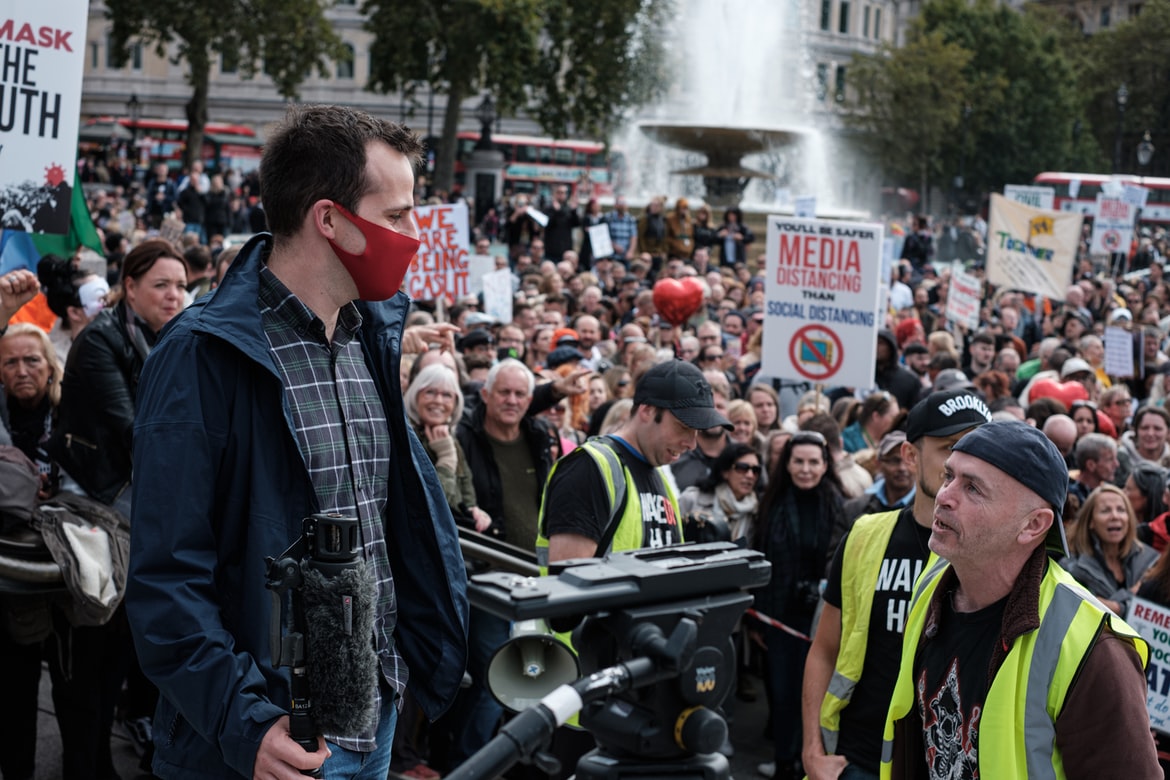
The rise of the Far Right is also rooted in the psychology of climate-change denial. There is a widespread view that climate change is either not real or ‘natural’ and therefore altering the economy or human activity is part of a sinister left-wing agenda to get a world police state and take away people’s freedoms. Bolsonaro in Brazil and Trump in the US exemplified this perspective and positioned themselves as fighting for ‘the little people’ against the supposed climate-change lobby. One of Bolsonaro ministers called climate change a hoax as they endorsed continued destruction of the Amazon rainforest. In Germany the growth of the AFD is in part linked to concerns that the green agenda will take away jobs – local leaders in Saxony declared they would continue to mine coal for ‘a thousand years’. In the Bundestag the AFD denounced the ‘eco-populist voodoo’. Orban in Hungary has denounced attempts to tackle climate change as a ‘utopian fantasy’. Others on the Far Right have accepted that global warming is real but only in order to warn of the danger of ‘uncontrolled mass immigration’ by climate refugees and the need for militarised and violent border controls to preserve ‘white nations’.
We have framed the advance of the Authoritarian Right in terms of the twin theories of creeping fascism and an increasingly repressive state. We reject sociological definitions of the Authoritarian Right in terms of static categories like ‘right-wing populism’, ‘authoritarian nationalism’, and so on. We also reject left-wing denials that what we are facing is fascism on the basis that it does not have the full panoply of interwar fascism with mass militias, Nuremburg rallies, and concentration camps; or theoretically more sophisticated versions of essentially the same argument to the affect that we have ‘convergence’ on the Right between conservatism and fascism. Our argument is that: a) fascism is a political process, not a fixed state-of-being; b) that the Right as a whole is moving to the right, to more extreme forms of nationalism, racism, misogyny, homophobia, authoritarianism, and militarism; c) that more mainstream far-right figures like Trump and Johnson enlarge the political space for the development of more virulent forms of creeping fascism; d) that the Liberal Centre is capitulating to far-right arguments and thereby underwriting the Far Right’s anti-migrant and ethno-nationalist narratives; and e) that the existing state apparatus is the primary instrument of fascist-type repression (in both the interwar period and today), and that the increasingly repressive state, not fascist militias, constitute the principal threat to democracy, civil liberties, minorities, and radicals/progressives.
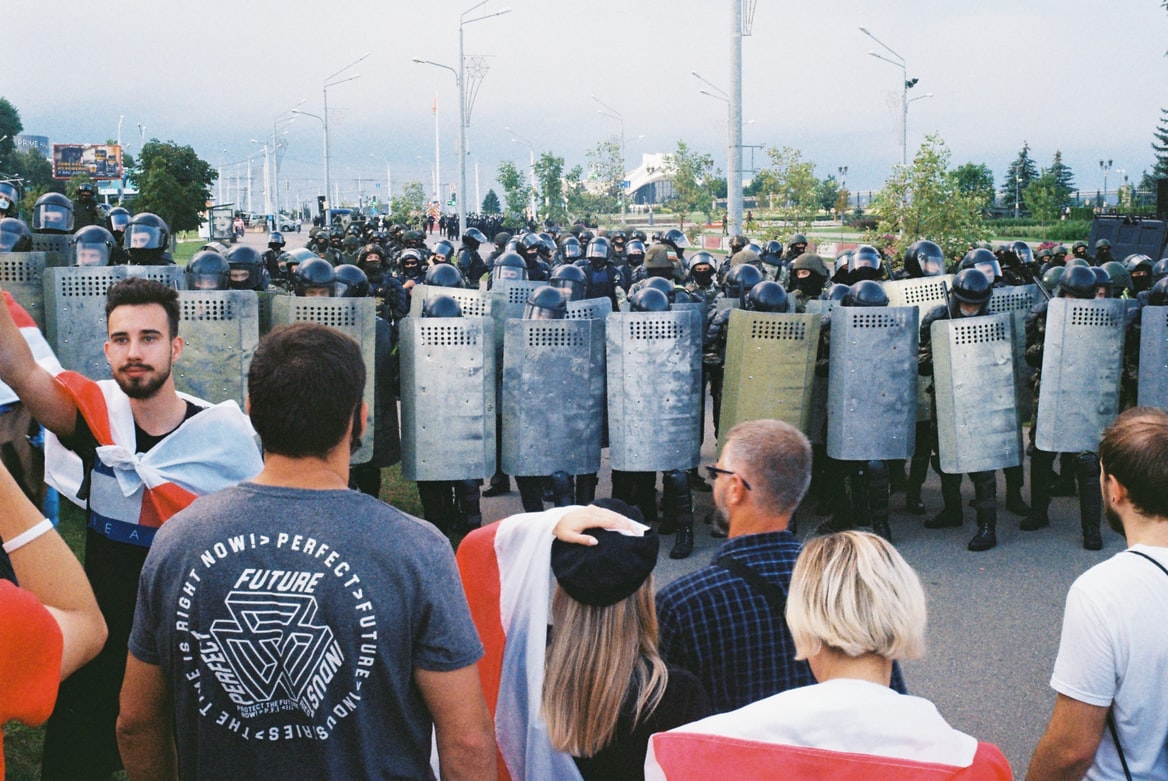
The advance of the Authoritarian Right has been facilitated by: a) unprecedented levels of atomisation and alienation; b) the exponential expansion of information technology/social media and a tsunami of digitalised bullshit; and c) an epidemic of extreme narcissistic individualism fostered by neoliberalism. The result has been a global surge of fascist-type irrationalism and a constantly evolving kaleidoscope of fascist-type groups. The human material of classical fascism was strapped together by mass parties. The human material of second-wave fascism comprises a vast online underground.
Religious fundamentalism is a key component of far-right ideology, with Buddhist (e.g. in Myanmar), Christian (e.g. in the United States), Hindu (e.g. in India), and Islamic (e.g. the Taliban, Isis, Al-Shabab, and Boko Haram) forms of fundamentalism contributing substantially to the development of far-right political movements.
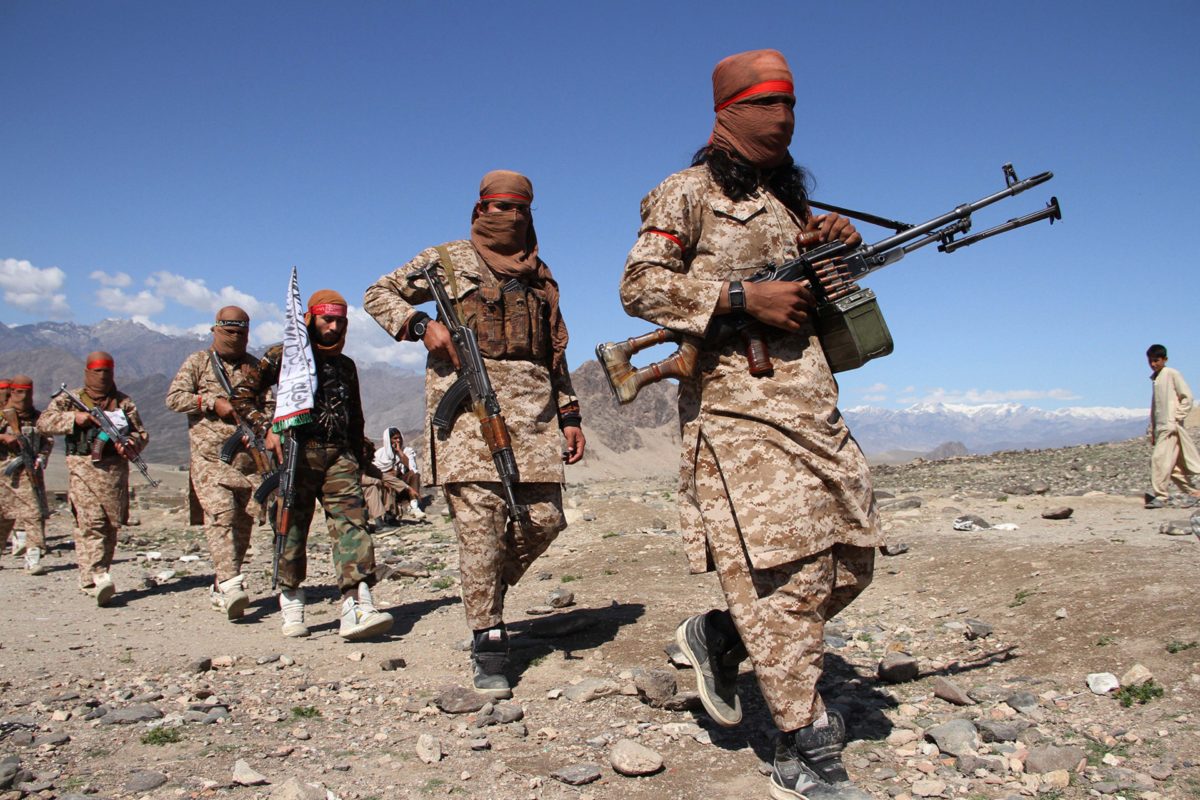
Societal collapse, extreme corruption, and the emergence of new Islamist forces has created the basis for proxy wars in which the imperialist powers (Britain, France, the US, and Russia in particular) have intervened militarily to back their own allies and satraps (the US and Britain backing Saudi Arabia in Yemen, for example, and Russia backing the Bashir al-Assad dictatorship in Syria). Hundreds of thousands have died in these wars in the last decade. The wars in Central Asia, the Middle East, and North Africa – framed by the self-proclaimed ‘War on Terror’ – have also boosted militarised accumulation. In addition to conventional arms supplies, this includes huge contracts for everything from hamburgers on military bases to digitalised surveillance and intelligence systems. Tech giants are major beneficiaries, as they are also from the wider expansion of the security state, with militarisation of borders, state spying on citizens, etc.
Culture wars are central to the political-ideological offensive of the Authoritarian Right. They are, in essence, an attack on the oppressed. In Britain and the US, this often takes the form of attacks on ‘woke’ thinking, a term which replaces the previous ‘politically correct’. Attacks on progressive movements and ideas supporting the exploited and the oppressed are an attempt to shift the political discourse to the right and enable the Authoritarian Right to push through its political and social agenda. Culture wars are thus directly linked to struggles over immigration, racism, woman’s oppression and reproductive rights, LGBTQI+ rights, social equality, and the rights of disabled people. A core concept of an embattled, masculinised, militaristic ethno-nationalism underlies these attacks. That is why, for example, the struggle to defend reproductive rights in Argentina, Poland, and the US cannot be separated from the rise of China-bashing nationalism, racism, and militarism.
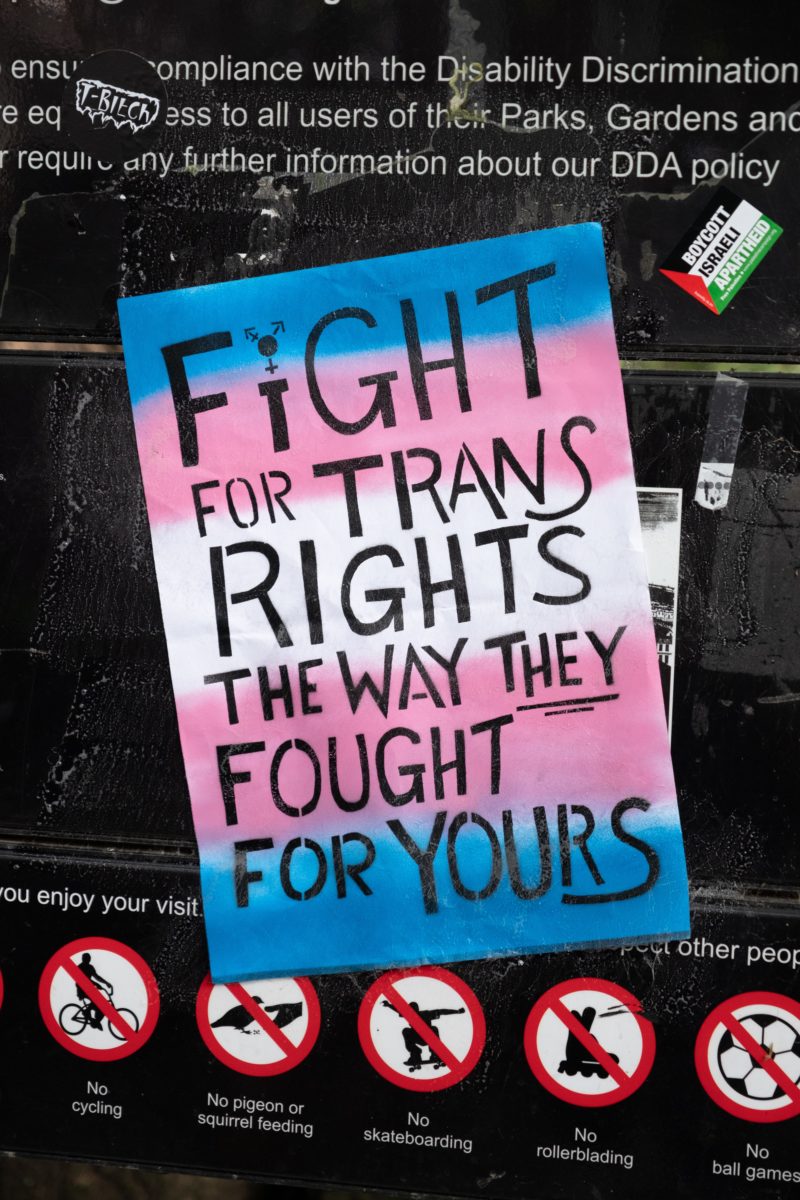
The culture wars give overt expression to deep neoliberalism’s journey towards fascism. Economic stagnation, soaring inequality, a pervasive sense of malaise, even of civilisational/existential crisis, a growing lack of security, well-being, and hope, the evident failure of liberal-parliamentary democracy to provide solutions, the self-serving complacency and corruption of the mainstream political class, all this and more has pushed the system in many countries towards authoritarianism and ethno-nationalism – a strong repressive state resting on a mass nationalist-racist electoral bloc. The culture wars aim to divide the working class and the oppressed, to prevent unity and solidarity in struggle, and to enable the Authoritarian Right to construct an anti-woke bloc formed of the reactionary middle class and the backward working class. This was the bloc organised around the Brexit referendum in Britain and the Trump presidential campaign in the US. The art of anti-woke culture war is to identify those sections of the population amenable to a reactionary agenda and the key issues that can mobilise them. In Poland, it is anti-abortion and anti-LBGTQI+ sentiment, both fed by the Roman Catholic Church. In Hungary, it is nationalism, anti-migrant racism, and anti-semitism. In France, it is above all anti-migrant racism and Islamophobia. In India, it is Hindu chauvinism and traditional Islamophobic communalism. In China, it is Han-Chinese nationalism, anti-Uyghur Islamophobia, and militarist sabre-rattling. But these are differences of form, not substance.
The culture-war ideologies that enable far-right mobilisation have to be identified and confronted, using an over-arching strategic concept: unity of the oppressed in the context of self-organisation, self-activity, and class struggle from below. This is opposed by liberalism, social democracy, and Stalinism. The argument runs that unity is best achieved by avoiding the ‘difficult’ issues raised by the rights and struggles of the oppressed and focusing on ‘bread-and-butter’ class issues. This ducking of arguments, most obviously over Brexit, was, of course, an element in the defeat of Corbynism. There is an overlap here with campism, with the more Stalinoid elements of the Left pushing pro-Chinese, pro-Syrian-regime, even pro-Russian perspectives. Our political identity as a national and increasingly international current requires that we confront the forces of both domestic economism and international campism.
The fight for the unity of the oppressed also means that we criticise and oppose autonomism, separatism, anti-politicism, and the tyranny of structurelessness. We critique radical feminism when it takes the form of anti-trans and anti-male prejudice that divides and weakens the struggle for trans and women’s rights. We critique obsessively horizontalist organisation because it is exclusionary, anti-democratic, and disempowering. We critique claims by some eco-activists that their movement is apolitical because it leaves the climate movement theoretically disarmed. We counterpose: a) the right of self-organisation and self-activity as building blocks for united mass struggle of the working class and the oppressed; b) mass participatory democracy as the basis for effective struggle that aims to draw the largest possible numbers into action and provides the best possible basis for sustaining and spreading the resistance; and c) a clear and consistent argument that the root of the world crisis in all its dimensions is the capitalist system and that red-green revolution has become an existential imperative.
The compound crisis of the system is immensely complex and fast-changing. It is a contradictory unity in motion. Each dimension of the crisis is itself contradictory, and each is in contradiction with the others. The danger of over-simplification, of falling back on anachronistic analysis, of thinking in terms of the fossilised categories of a sect, is acute. We prefer here simply to identify the key overlapping dimensions/processes of the crisis and to suggest the need for more detailed analysis and discussion as we develop new, up-to-date Marxist perspectives. Nonetheless, we offer some examples of the contradictions in play.
Transnational capital – where production, distribution, and marketing are spread across three or four continents and two or three dozen countries – often with all or most production and distribution outsourced and marketing controlled by a giant hollow corporation that accumulates most of the profit – this is now the dominant form of capital on a global scale, hegemonic over national and regional/local capitals. We might ask: is it in the interests of transnational capital for there to be a world war between, say, the US and China? No. But is it in the interests of transnational capital for there to be an accelerating arms race? Yes. Or we might ask: is it in the interests of transnational capital for there to be a global financial collapse? No. But is it in the interests of transnational capital for there to be continuing expansion of the permanent debt economy? Yes.
Or let us consider the nature of imperialism and inter-imperialist rivalry. This is no longer the imperialism that gave rise to two world wars between 1914 and 1945. That is because the dominant fraction of world capital today is transnational capital, not national capital, so the nexus of state/finance/industry described by Bukharin and Lenin a century ago no longer operates to drive inter-imperialist rivalry in the same way. A more complex and contradictory relationship now exists between processes of global capital accumulation and great-power competition. On the other hand, creeping fascism, authoritarian nationalism, and the creation of reactionary political blocs inside major states give rise to militarist pressures; the stability of regimes based on nationalist-racist ideology may, at some point, come to depend upon armed aggression. This was a characteristic of interwar fascism, with Italian, German, and Japanese fascism all driven to embark on unwinnable imperialist wars by their own (irrational) internal dynamics.
The world crisis can be described as over-determined because of the overlapping and interaction of its various processes. Each process is subject to tipping-points – where, for example, global warming causes a sudden and irreversible meltdown of a major ice-sheet, or where the accumulation of fictitious capital triggers a new financial crash. But the different processes also interact in complex and unpredictable ways. The ecological and epidemiological crises, for example, are putting economies under massive strain, causing further social dislocation and distress, and evoking more surveillance and repression by the increasingly repressive state. In particular, we can expect the Authoritarian Right to use every opportunity afforded by the crisis to attack liberal-parliamentary democracy and advance its programme of slow-motion gleichschaltung (the gradual transformation of the bourgeois state into an instrument of authoritarian repression by a process of purge, intimidation, and indoctrination).

The crisis of the Liberal Centre – based on traditional parliamentary democracy – is now acute. The bourgeois state is less able to manage the economy to mitigate the impact of economic crisis and ameliorate social conditions in the way that it did between 1935 and 1975. These functions – the basis of post-war Keynesianism and the welfare state – have been hollowed out by the transnationalisation of capital, with the state compelled to offer subsidies, incentives, deregulation, privatisation, low wages, etc to attract investment. Consequently, parliamentary regimes are more technocratic and repressive, their essential role to manage and police capital accumulation and the siphoning of wealth to the rich and the corporations. While it is still possible for governments with more progressive, reformist, and green programmes to gain power, they are likely to combine restrictive labour laws, racist border controls, police repression, etc with only small-scale reforms. The current Spanish government suppresses the Catalan nationalists while improving welfare benefits. A Starmer government of similar stripe is conceivable if the Johnson regime implodes. A Lula government could well replace the authoritarian regime of Bolsonaro in Brazil. But the recurrent failures of various forms of centrism and social democracy have created a democratic deficit that contributes substantially to the rise of the Authoritarian Right, with its nostalgic evocation of a better ‘Then’ compared with ‘Now’, its advocacy of various forms of ethno-nationalism under strongman leadership to recover a lost imaginary past, and its castigation of liberal metropolitan elites and their progressive/cosmopolitan fellow-travellers. In the face of this threat, the Liberal Centre echoes nationalist-racist arguments about the migrant problem, the terrorist threat, the need for strong borders, the need for repressive laws and more police, etc. This attempt to win back electoral ground enlarges the space for creeping fascism and squeezes that for liberalism and social democracy – though social-liberal centrists like Macron will continue to use the threat of authoritarianism to secure election. The ineffectiveness of such governments reflects the inability of the Liberal Centre to offer an effective response to any aspect of the deepening world crisis.
Inevitably, in a period of polarisation, some countries are also electing left-wing governments in response to the crisis of neoliberalism. Recent election victories for the left in Bolivia, Honduras, and Peru, as part of the ebbs and flows of the ‘pink tide’ in Central and South America, show the continued desire for people to resist neoliberalism. Lula could well become President of Brazil again in 2022 in a defeat for Bolsonaro’s Authoritarian Right. In Chile, Chile Boric and the Frente Amplio are fighting it out for the presidency in the second round against a Pinochet supporter. In Argentina, the Trotskyist-led FIT won million-plus votes and 4 MPs, becoming the third national political force. Closer to home, the Bloco in Portugal have around 10% of the vote and will continue to play an important role. The Red/Green current scored very well recently in Copenhagen, and the PTB achieved respectable electoral results in Belgium. Mélenchon and his France Insoumise could well get over 10% of the vote in the first round of the presidential elections; revolutionary forces to his left may get another 2 or 3%. In Scandinavia, a coalition of the Left swept to power in Norway in October 2021, joining other centre-left/social-democratic governments across the region. Despite the centre of gravity of politics moving to the right, and even to the authoritarian/fascist right, there are still counter tendencies which are social-democratic, radical left, and green that provide opportunities for the Revolutionary Left.
The problem all these governments face is they cannot escape imperialist interference or economic domination and they are struggling under the conditions of late capitalism to deliver on progressive manifesto pledges. Nipping at their heels – or threatening to take power – are reactionary forces and parties representing the authoritarian-populist-nationalist alternative to globalisation: creeping fascism.
The crisis of the Revolutionary Left takes a different form. The last quarter century, and the last decade in particular, have witnessed a rolling firecracker of gigantic protests, historically unprecedented in size, occasionally swelling into insurrectionary confrontations between the increasingly repressive state and mass movements of radical youth, the working class, and the oppressed. But each of these great upsurges – from the anti-globalisation and anti-war protests two decades ago, through the anti-austerity and pro-democracy struggles following the 2008 crash, including the Arab Spring revolutions, to recent mass popular upsurges like Black Lives Matter, the climate movement, and the huge mobilisations in Hong Kong, Chile, Belorus, Sudan, Myanmar, and elsewhere – each and all of these have eventually been knocked back. We need to understand why.
The crisis of mass resistance is a result of the social atomisation, political fragmentation, and loss of class consciousness and organisation following nearly half a century of neoliberalism. In the 1960s, 1970s, and 1980s, hundreds of millions of people had direct experience of mass struggle based on strong workplace and community organisation which engendered high levels of class consciousness and traditions of solidarity, militancy, and self-activity. The bedrock of trade union organisation, including rank-and-file organisation and much unofficial/wildcat action, gave the struggles of the period a stable foundation, making them sustainable in the short run and renewable in the long run. The movements of the present lack this foundation. They tend to be spontaneous, eruptive, episodic, momentary; they rise like a rocket and fall like a stick. This is partly a generational problem. The revolutionary Marxist tradition – and we can define Marxism as the theory and practice of international working-class revolution; or, to put the matter another way, the concentrated crystallisation of 200 years’ experience of the class struggle – is carried mainly by a small cadre of older comrades. The mass movements of protest and resistance, on the other hand, are led by people in their 20s, the great majority of whom are not Marxist or Marxist-influenced. In the 1960s, the youth vanguard was usually revolutionary Marxist (or revolutionary Anarchist). Today, it is informed by an inchoate mish-mash of digitally-transmitted, half-baked, disconnected ideas, albeit laced with instinctive ecological awareness, anti-racism, anti-sexism, etc.
In 1930, Gramsci wrote: ‘The crisis consists precisely in the fact that the old is dying and the new cannot be born; in this interregnum a great variety of morbid symptoms appear.’ The cost would be fascism, world war, industrialised genocide, and 60 million dead. In 1938, Trotsky argued that the crisis of world capitalism was the crisis of revolutionary organisation. The problem then was that fascism and Stalinism had largely destroyed the revolutionary Marxist tradition. In 2021, we again have a crisis of revolutionary organisation. In this case, it is half a century of neoliberalism that has largely destroyed the revolutionary Marxist tradition. The central task for revolutionaries is to build new revolutionary Marxist organisations among the youth vanguard of contemporary movements of mass resistance; it is to reconstruct revolutionary agency in the context of the compound crisis of world capitalism in the early 21st century. The stakes have never been higher. We should endeavour to build that revolutionary organisation on an international basis. We defend Lenin, Trotsky, and Luxemburg’s conception of an international – in addition to building national revolutionary parties.
Although circumstances have changed dramatically, and the revolutionary subject been significantly altered, the essential method of anti-capitalist revolution is the same as in the 1930s – from today’s conditions and today’s consciousness towards the conquest of power. Revolutionary Marxists understand, in relation to the climate crisis as much as anything, that although partial gains can be made at every stage, the overall and complete solution of the crisis in the interests of the working class and the oppressed requires anti-capitalist revolution and an alternative economic, social, and political order – socialism. The state will fight back with every weapon at its disposal, in particular the ideological weapons which underlie the Authoritarian Right and creeping fascism. Their key weapon is to divide the oppressed: our key weapon is the fight for unity in struggle.
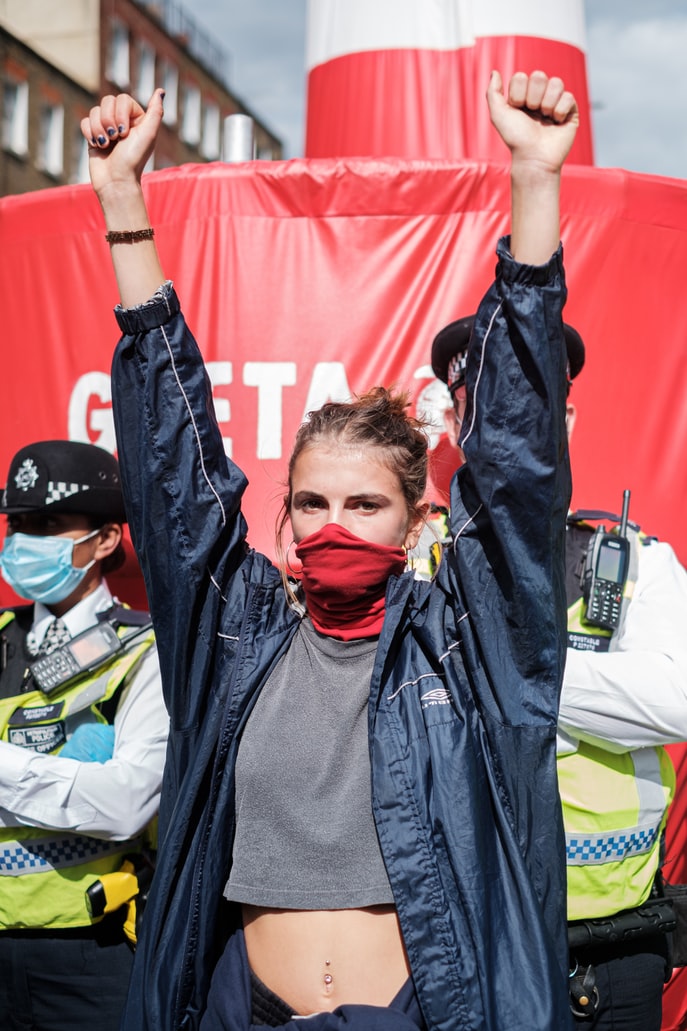
The stakes and the contending forces were much in evidence at COP26. The issue of capitalism and capitalist solutions dominated the debates on Finance Day on 3 November. On Channel 4 News, an increasingly desperate Krishnan Guru-Murthy asked a succession of business persons, ‘Don’t you realise that lots of people here in Glasgow think your business solutions are greenwash?’ All his interlocutors were impervious to reason. The counterpoint of the oppressed was dramatically shown on 5 November youth demonstration involving tens of thousands and including striking bin workers in the GMB contingent, striking schoolkids, Extinction Rebellion activists, indigenous groups, and numerous progressive campaigns.
What distinguishes revolutionary Marxists is that within every campaign and movement, we champion the interests of the movement as a whole, and that means championing the revolutionary fight against capitalism, whatever the language we use to describe it. Terminology is tactical, but anti-capitalism is a principle. This anti-capitalism necessarily operates at the intersection of working-class struggle with the feminist, LGBTQI+, anti-racist, and disability movements. The working class itself is diverse in character. It is not a monolithic bloc defined by uniform identity. The unity of the working class – its intersectional strength – cannot be assumed but must be fought for. Taking up the challenge of the Authoritarian Right’s culture wars is central to that task.
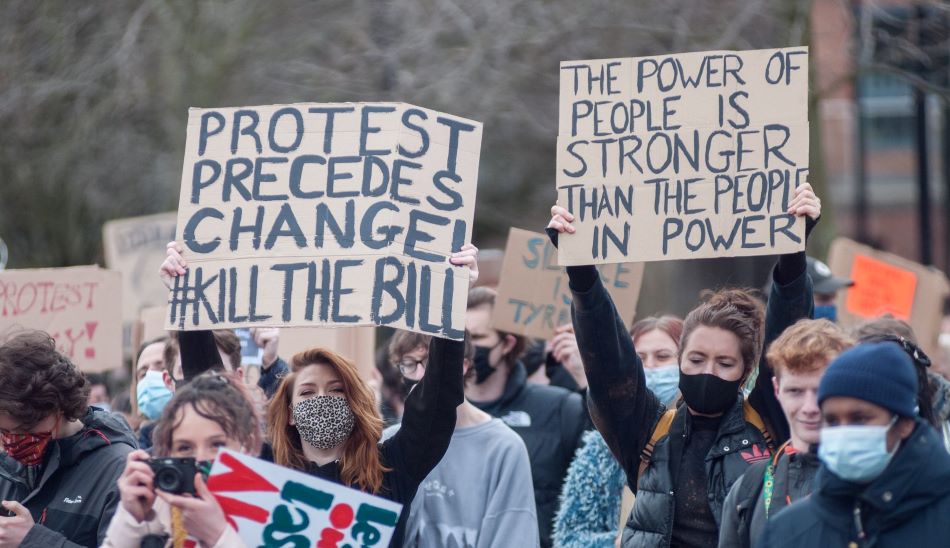
Neoliberalism has three defence mechanisms: repression, limited concessions, and dividing the oppressed. The key ideological tools for dividing the oppressed are the tools of culture wars centred on racism and misogyny. We do not seek to create a hierarchy of oppressions – we stand with all the oppressed – but we have to recognise the cutting-edge of the Authoritarian Right’s global culture war. This was unleashed in full force after the 2008 financial crash, the implementation of savage austerity programmes, and the popular upsurges represented by the Occupy! Movement, the Indignados, the Arab Spring, etc.
The division of the working class by culture-war ideology is inseparable from the assault on democracy. In every country where a mass movement fights back against racism, sexist violence, climate vandalism, etc, the police and courts are mobilised to crush them. This repression rests upon a mass electoral bloc of the reactionary middle class and backward working class. The defence of democratic rights is a key international task.
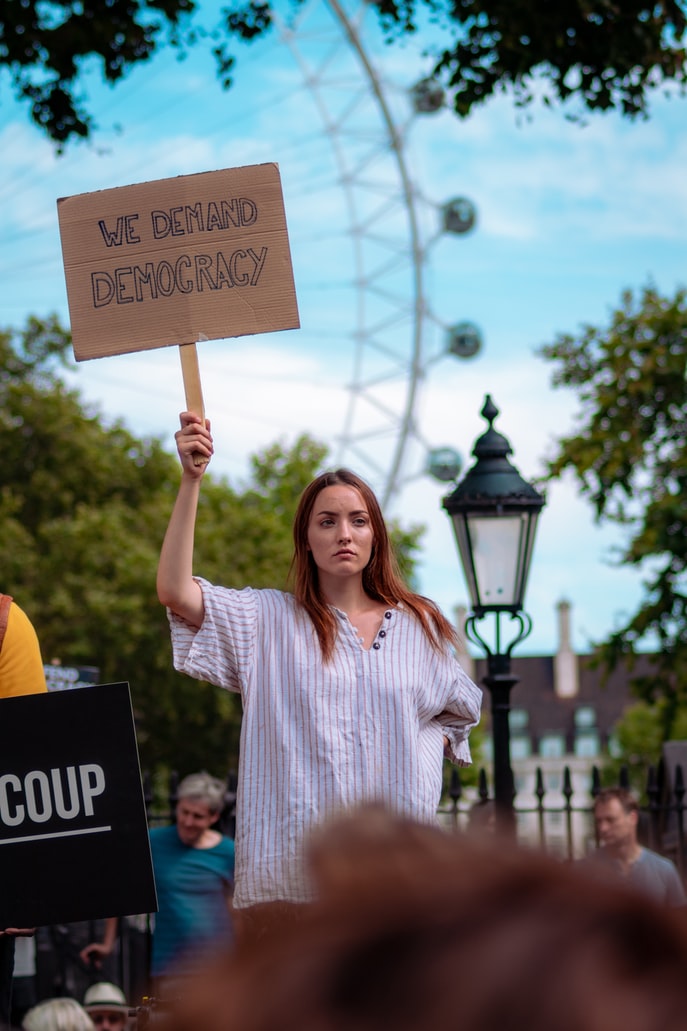
Revolutionary Marxists have to build a revolutionary force at the heart of the protest movements, a force that can link them together on an anti-capitalist basis. That means, of course, building a revolutionary Marxist core, but – depending on circumstances – may also involve the attempt to build a broader anti-capitalist party to the left of social democracy, liberalism, and campism (the modern form of Stalinism). Attempts to build broad left parties in the past 50 years have met with multiple failures. But that does not mean that they were all doomed a priori, or that their existence was a total failure. For example, the building of the Brazilian Workers Party, in which the local section of the Fourth International was involved from Day 1, was a massive boost to the struggles of workers, women, the landless, LBGTQI+ people, and indigenous communities. The Right is moving to the right. The Centre is being squeezed. But the Left is moving to the left. There is global polarisation. The possibility exists for the emergence of new mass parties of the Left with a strong revolutionary component at their centre.
In conclusion, the A*CR should: a) fight for the unity of the working class and the oppressed in struggle; b) oppose the divisive culture-war attacks of the Authoritarian Right on every front; c) support all credible attempts to form broad anti-capitalist parties to the left of social democracy; d) aim to build a revolutionary Marxist core, especially among the radical youth vanguard of the mass struggles, but also alongside established labour-movement activists; and e) support a permissive internal political culture on the Left that is tolerant of differences and conducive to debate.
Art Book Review Books Campism Capitalism China Climate Emergency Conservative Government Conservative Party COVID-19 Creeping Fascism Economics EcoSocialism Elections Europe Far-Right Fascism Film Film Review Fourth International France Gaza History Imperialism Iran Israel Italy Keir Starmer Labour Party Long Read Marxism Marxist Theory Migrants Palestine pandemic Police Protest Russia Solidarity Statement Trade Unionism Trans*Mission Ukraine United States of America War

